As effective search engine optimization (SEO) is when it comes to generating website traffic for increased conversions and sales, it’s also one of the most time-consuming to execute.
A successful SEO strategy requires immersive planning, research, and implementation that takes months—if not weeks—to formulate.
More importantly, SEO never stops.
You must constantly track and monitor your site’s organic search performance and make changes to improve its results.
To be fair, the benefits you will sow from a well-thought-out SEO campaign is all worth the time and effort you’ll be putting into it.
But if there’s only a way to expedite the process so you can focus on scaling your website’s organic traffic growth.
Enter artificial intelligence (AI).
This post tackles everything you must know about AI and how you can use it for developing and launching an SEO strategy. Finally, we’ll look at AI tools to use so you can automate repetitive and crucial SEO tasks to get the most out of your effort.
What is Artificial Intelligence?

AI is composed of different technologies with machine learning and deep learning models at its core to help users perform specific cognitive tasks that only humans were able to execute back then.
Below are some of the things that AI can do for humans:
- Image recognition – Identify an image by cross-referencing its patterns and objects to a body of images it previously analyzed.
- Machine translation – Translate content from one language to another without human intervention.
- Natural language processing (NLP) – Understand a corpus of text by interpreting its tone, context, and other parts of speech.
- Speech recognition – Converts natural-sounding speaking voice to digital format so it can read for you.
To be clear, not all AI features produce 100% accurate results. For example, you’ll most likely get better translations from a native speaker than machine translation.
Nonetheless, AI is proof that it’s now possible for technology to perform various digital tasks to benefit your business. And it’s just going to get better moving forward.
Instead of hiring graphic artists to design your ad creatives, you can use AI instead to get your ad creative needs faster—if not better.
The possibilities are endless with AI, and it’s just a matter of time until AI sorts itself out. When the time comes, it can help businesses increase output without human assistance while maintaining quality and at reduced costs with their digital marketing campaigns!
Why Should You Use AI in SEO
For the reasons stated above, you should start learning how to leverage AI as part of your SEO processes.
As mentioned, one of the biggest factors going against SEO is time.
We’re not just referring here to what you must do to launch your campaign. We’re also talking about the time you have to wait before the results of your hard work come kicking in.
Studies have shown that SEO takes effect between four to 12 months.
That means that even after concluding your SEO campaign, you have to wait up to a year before you can reap the benefits of your SEO efforts.
And that’s the best-case scenario, as some results will manifest well over a year!
These date ranges depend on the quality of your SEO strategy and uncontrolled factors like niche, industry, competition, and search engine algorithms, among others.
So, there’s nothing much you can do for your SEO results to happen sooner—once you publish your content and build your links, how your site will rank on search engine results pages (SERPs) is out of your hands.
However, what you can do is speed up your SEO campaign so you get to achieve your results faster. AI is capable of doing this for your website’s SEO.
Ways to Leverage AI in SEO

You’re probably already using AI in your SEO strategy without being aware of it.
For example, you’re using SEO tools like Ahrefs for keyword research to help you determine which search queries to optimize first based on metrics like search volume and keyword difficulty.
However, you’re barely scratching the surface of AI with most SEO software in the market.
It’s not about using AI to automate menial tasks in your SEO strategy. Using AI’s sophisticated technology, you want it to also take away the guesswork from your SEO analysis.
By getting help with thinking for you, AI makes the entire process of building and executing an SEO strategy faster and less tiresome.
This way, people have the energy to focus on analyzing the campaign as it happens to get the most website traffic out of it.
Below are ways you can do it, along with the best tools you can use for each:
Identify Keyword Intent and Clusters
When performing keyword research, you want to find keyword ideas related to your topic.
However, there’s the problem of finding the right keywords to work on first.
The Product reviews update has made it difficult for people to monetize their websites for money or commercial keywords only.
What Google wants to see from pages optimized for these keywords is visual evidence, i.e., images. This shows readers that they tested the product out.
The other is linking to other vendors to give visitors an option to buy from their preferred online stores.
But the more important takeaway from this update is you have to build trust with your audience first.
So, instead of focusing on content creation for keywords such as “best of,” “x review,” and others, you should create informational content that answers the four W’s (what, why, when, where) and one H (how).
Targeting these keywords won’t yield you commission sales since the intent of these keywords is to supply information. However, they help showcase your expertise in your industry.
This results in your product recommendations becoming more effective and helps you convert more visitors into sales!
To do this, you need a keyword ratio of 67% informational content and 29% commercial, according to Matt Diggity. Ideally, you want to deliver more helpful content to your audience first and offer your expert recommendations second.
When researching for keywords, therefore, you want the fastest and easiest way to cluster keywords according to their intent and their topic, entities, etc.
One of the AI SEO tools that can do this for you is Keywordinsights.ai.
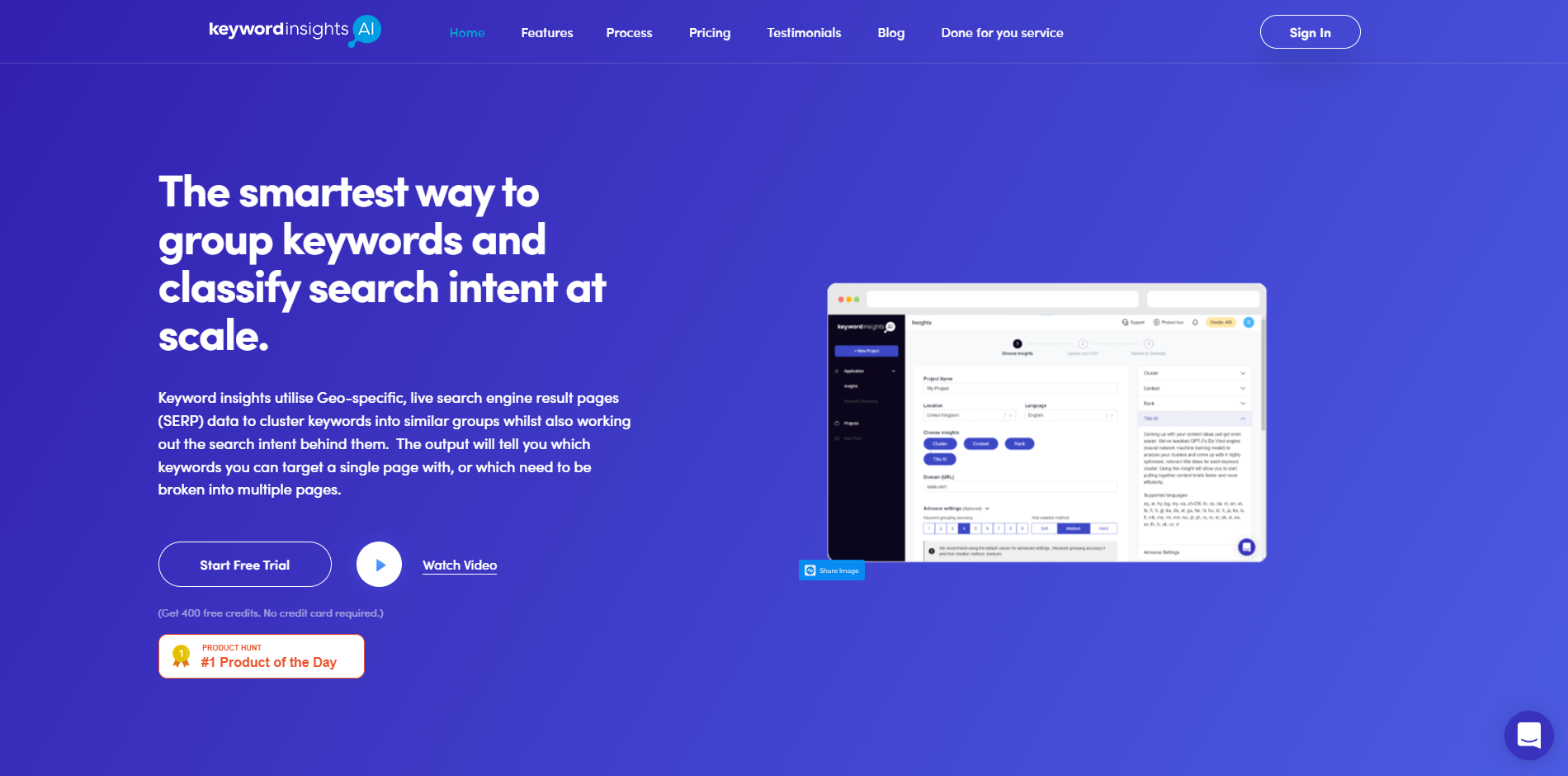
Upload the keywords you research, and the tool will cluster related keywords together to help you create a post targeting all these terms. It will also designate keywords for the cluster that you can use to create its supporting articles.
Keywordinsights.ai also takes into account the intent of each keyword. This way, it can organize clusters according to their intent, so you can create content that will help build trust with your audience and increase your conversions over time.
Finally, the tool has its own Keyword Discovery feature where you type in your seed keyword to extract ideas and suggestions from it. You can then use the terms to create clusters for your site.
Create Content in Minutes
AI-powered tools in SEO content creation is all the rage now, and with good reason.
I mean, if you can create content that’s good enough for publishing with a few clicks of a button, everybody would jump a chance at that offer!
One of the most popular AI-based SEO tools is Jasper.ai.
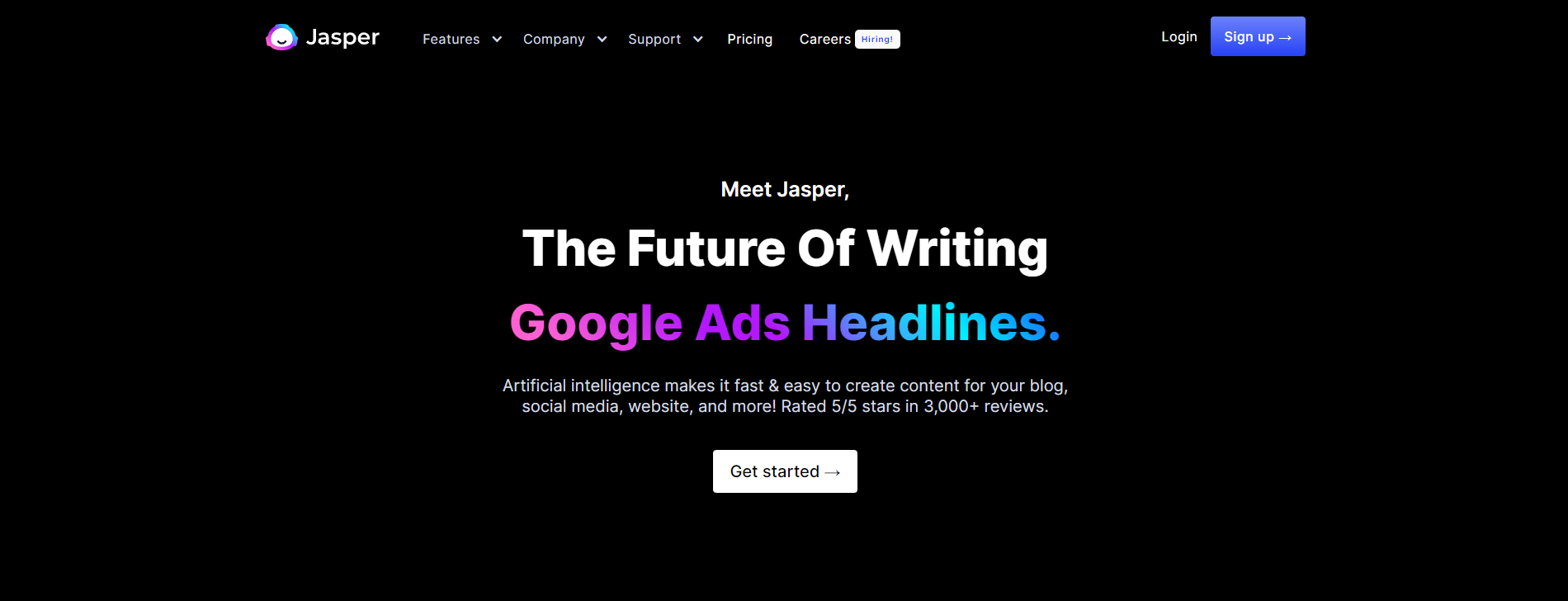
A lot has been said about this tool, and we’ve covered its free trial in case you’re interested in signing up.
In short, the tool can help you create any written content in a few minutes. Just provide Jasper.ai with context about the content it’ll create for you.
From here, you can use its templates or start from scratch with its Boss Mode feature to click your way to a decent blog post in record time.
I emphasized “decent” because most of the content it’ll produce for you still requires manual editing due to information gaps and inaccuracies.
The content is solid for what it’s worth, as it cuts down the time spent on writing the content manually.
Aside from content creation, AI also helps you with your content optimization efforts.
Gone are the days when keyword stuffing worked. Nowadays, you have to create content that provides the best information to its audience based on intent.
This includes mentioning objects and entities associated with your target keywords.
Among the many AI content optimization tools in the market, Surfer SEO remains the most accessible of the bunch.
Its SERP Analyzer allows you to understand which among the multitude of page factors have the biggest impact ranking for a keyword based on the top-ranking pages.
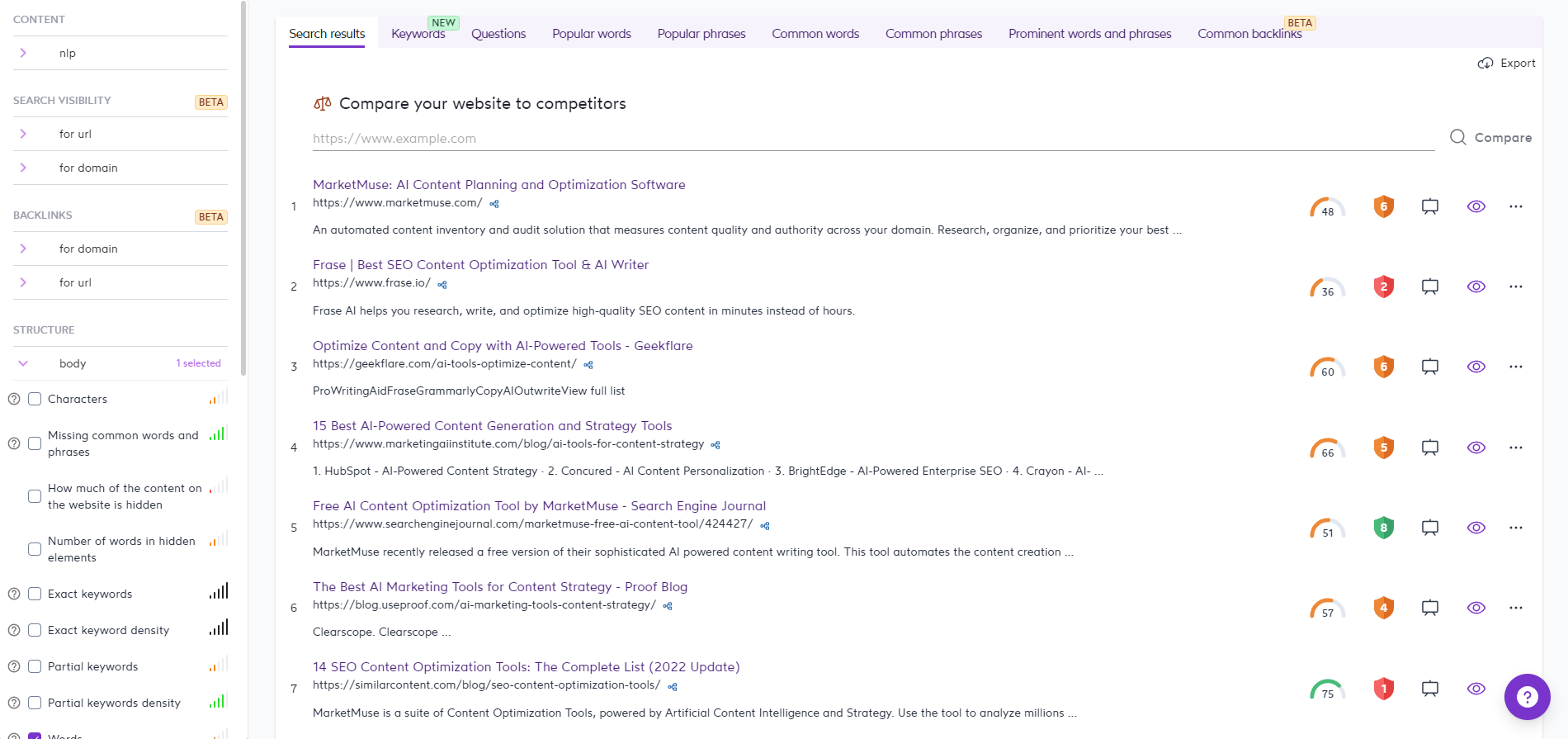
Using this information, you can create content comparable with the ones ranking on top for this particular keyword. This increases your page’s chances of ranking for the term on SERPs!
But instead of exporting Surfer SEO data and writing the content in a document, you’re better off using its Content Editor.
You can cluster as many as 20 keywords in a document.
Once the tool has collected all information for your keywords, it provides you with a list of keywords (NLP included!) to help you touch upon terms and topics related to the keywords for which you’re optimizing.
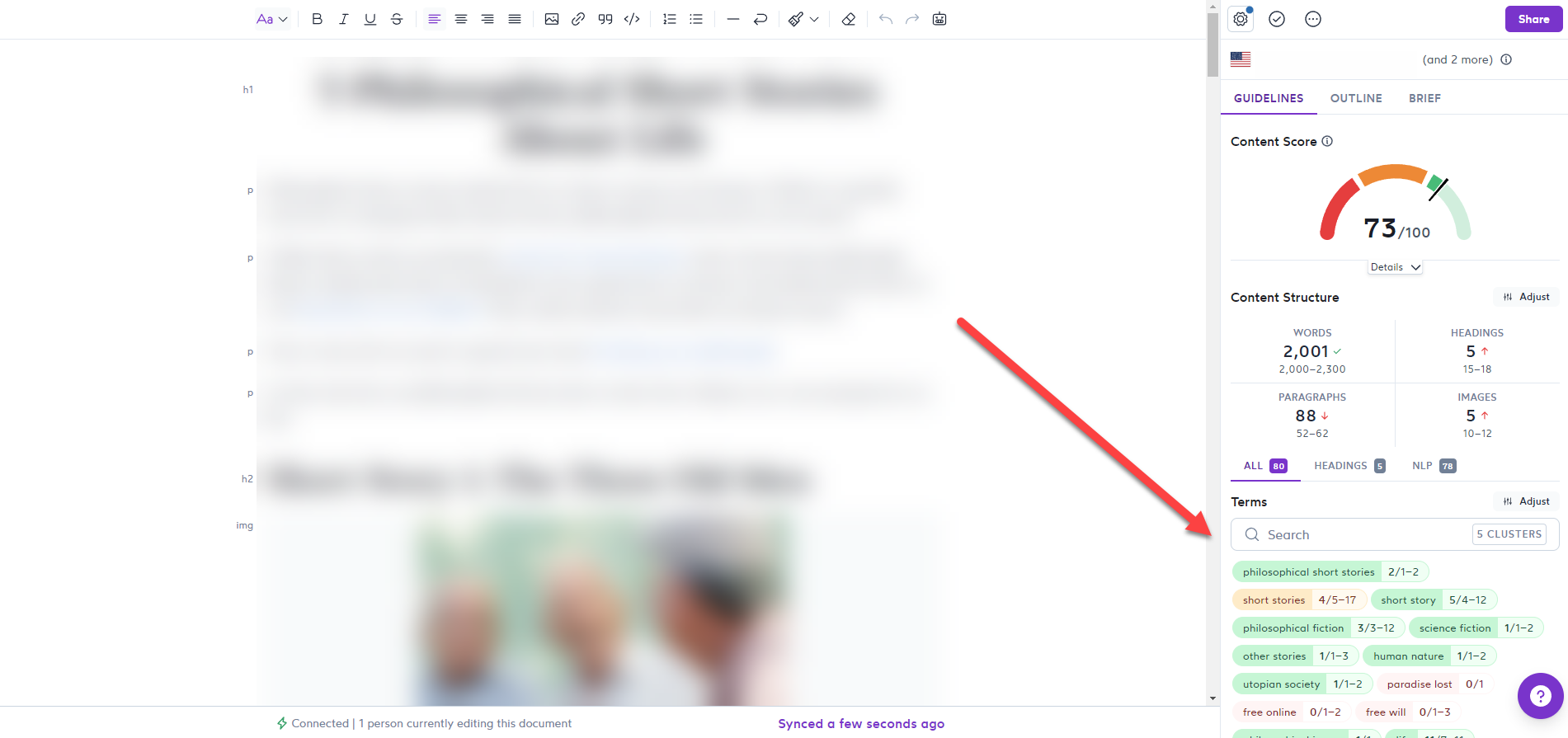
If you have an active subscription to Jarvis.ai, you can integrate Surfer SEO and use it to optimize your AI content from the Jarvis dashboard.
Using both tools in unison, you can fortify your content marketing efforts with SEO-friendly content produced in the least time possible.
Reinforce Your Knowledge Graph
A knowledge Graph refers to a semantic network of objects and entities and how they are related.
This is crucial in SEO because you want to optimize your website for terms relevant to your topic.
If your website is about The Beatles, you should have pages about its members and the band’s legacy. You’re NOT talking about beatles (the insects) and their different types.
But without a clear Knowledge Graph in place, search engines might confuse your entities with others that have the same name but have different meanings and thus belong in another semantic network.
Establishing a Knowledge Graph for your website is crucial to help increase your topical relevance for your umbrella topic.
Once you have created content and associated the mentioned terms in your Knowledge Graph, search engines will acknowledge the close relationship between the words in your article and the topic.
This results in greater chances of ranking for your keywords within that topic!
To do this, you can create structured data for your important pages and a custom Knowledge Graph to reinforce your website’s relationship to your topic.
WordLift is a WordPress plugin dedicated to helping you make this happen.
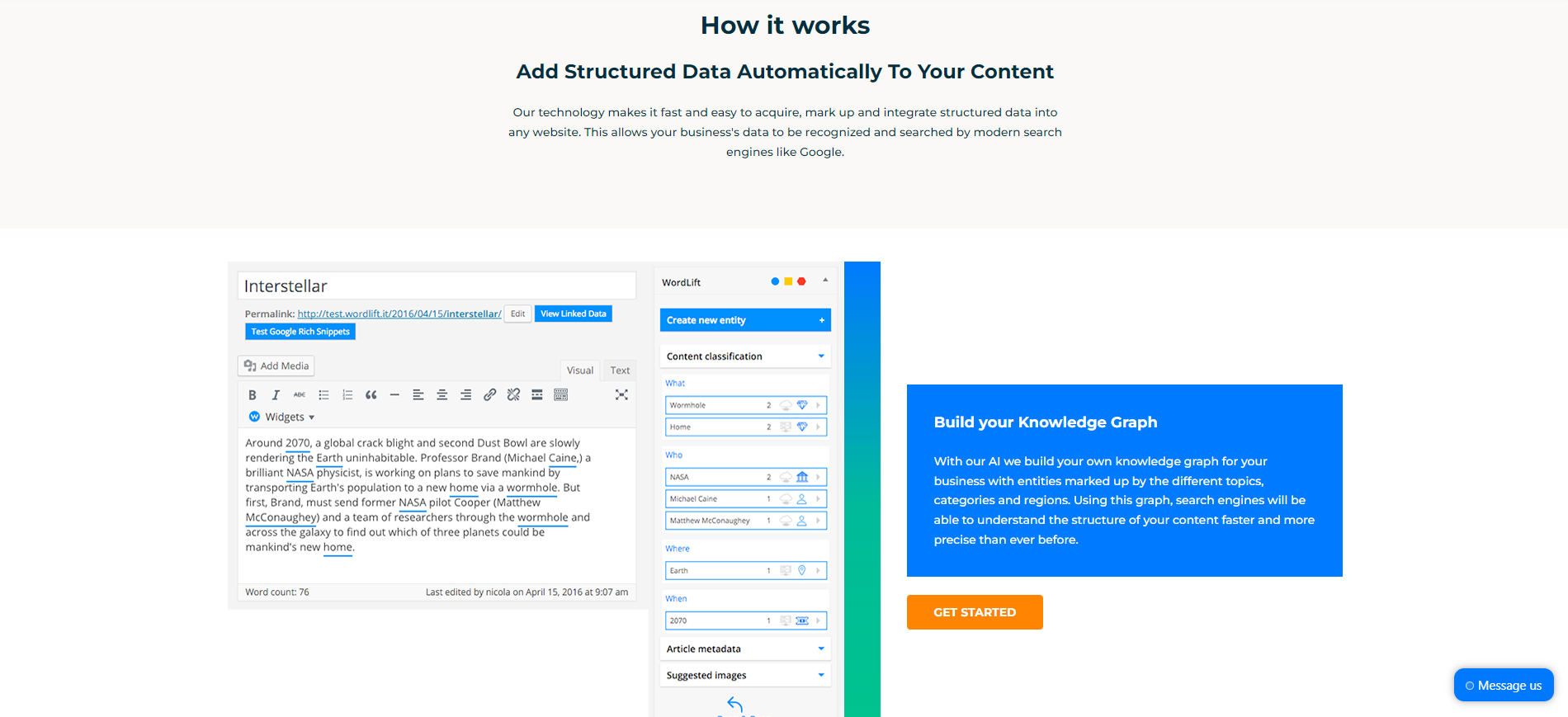
With a few clicks of a button, you can define entities and terms used on your website so you don’t leave them for interpretation by search spiders.
Another feature of WordLift includes content recommendations, where it automatically generates pages related to the current page that visitors can read afterward.
Receive SEO Recommendations
With all due respect to AI-powered SEO software in the market, your brain remains the most powerful search optimization tool.
However, there will come a time when you need someone else to come up with SEO insights for you. This is due to the draining effort required to identify which tasks to prioritize first in your SEO efforts.
Thankfully, some tools can help you analyze data from your Google Search Console (GSC) and create actionable items for you to do.
Aside from being a content AI tool, Surfer SEO has a new feature called Grow Flow.
You input your domain’s URL, and the tool will corroborate information with your GSC to identify search queries of which your pages are getting impressions.
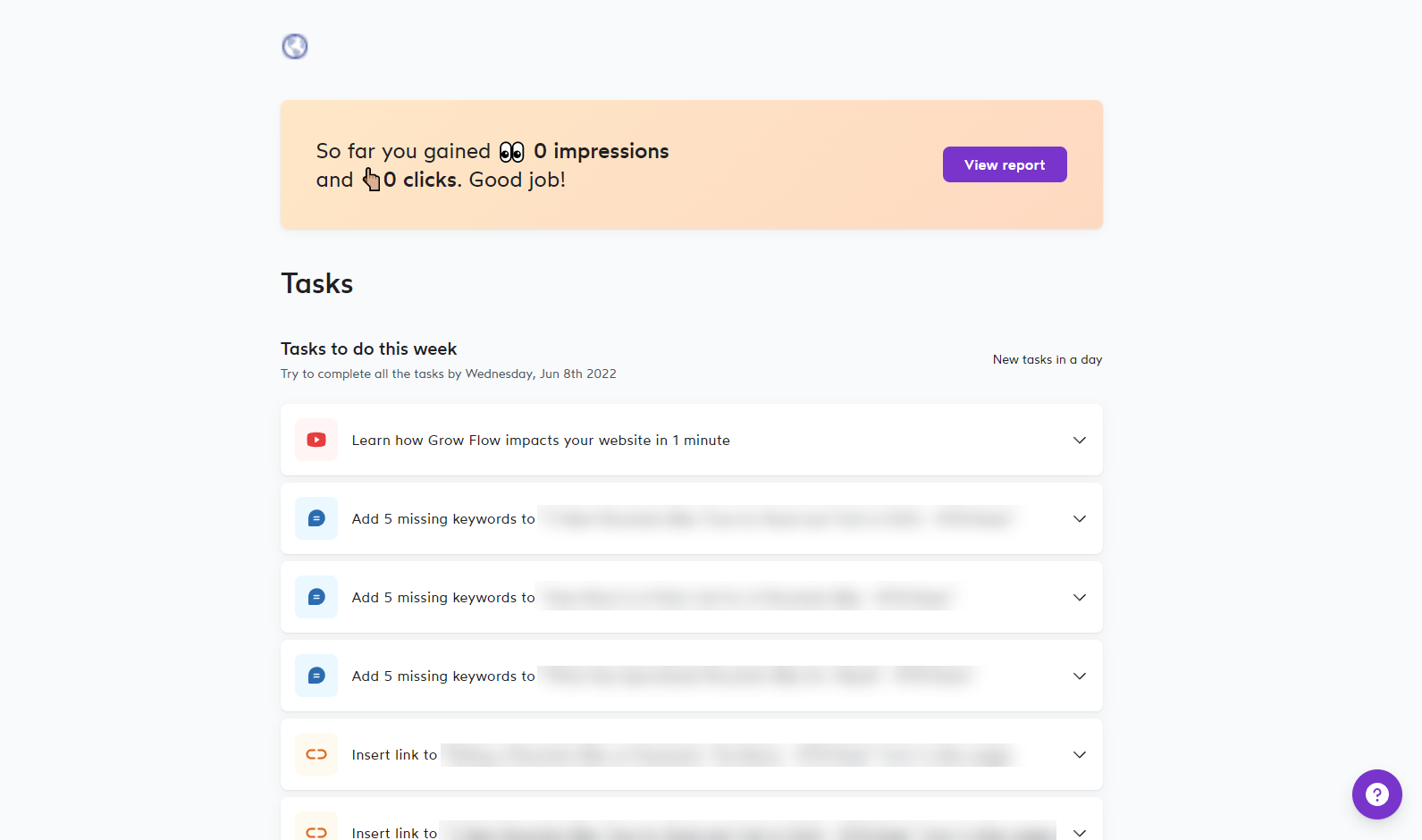
After the analysis, you will have a to-do list to help increase your Content Scores for these terms. It also asks you to build internal links to your most related pages to boost your topic relevance.
The tool refreshes the list of tasks you can do for your site in a week, so you can continue to update your
Another tool you ought to consider is Can I Rank.
Upon signing up for an account, it analyzes your site for opportunities it can capitalize on. It tells you which sites to contact to build links on, what keywords to target, and others.
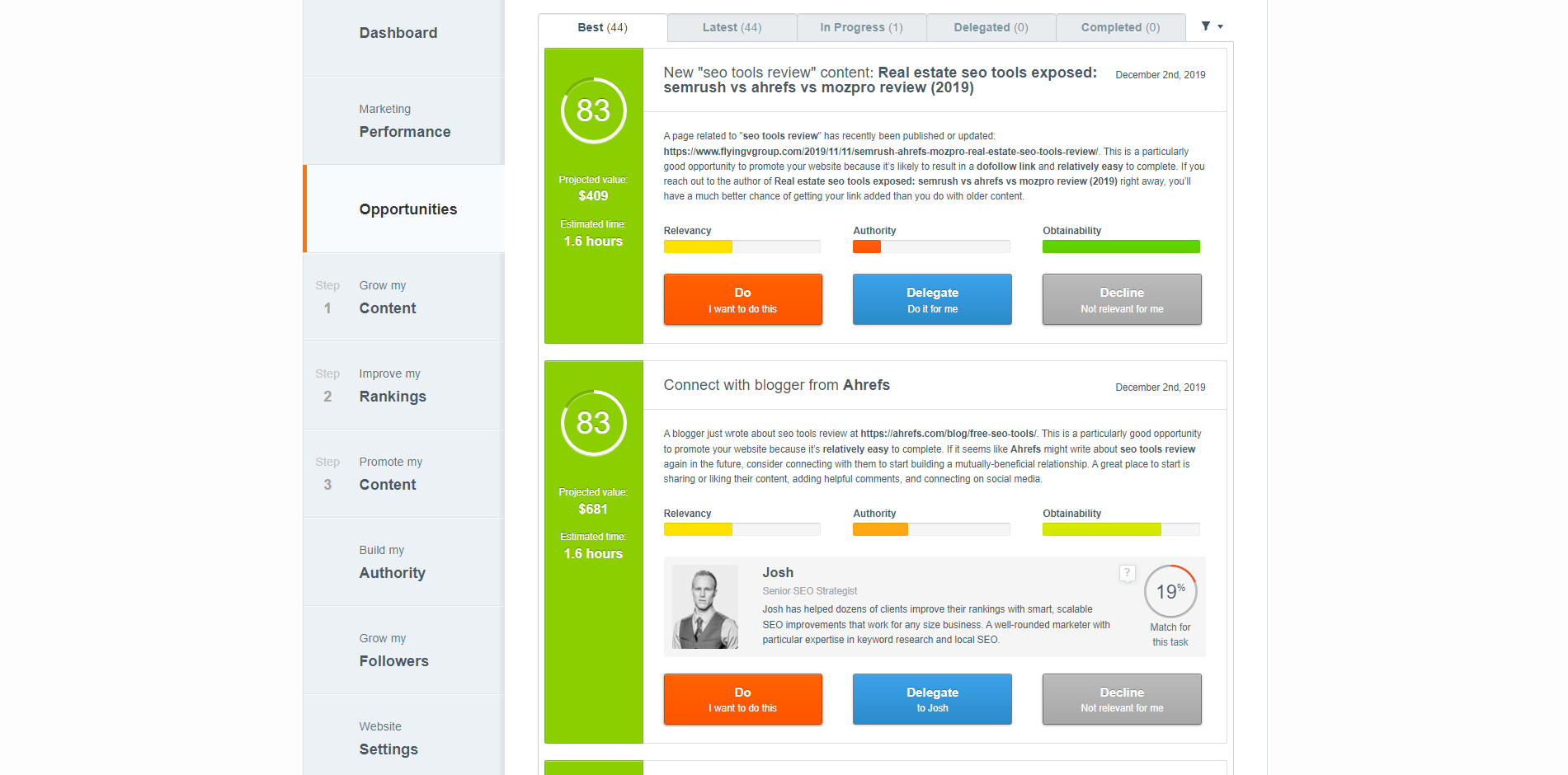
Remember that you still need to vet most of the recommendations you’ll see here. They all don’t align with the strategy in place for your site.
Nonetheless, having a list of tasks to choose from with AI’s help is a great place to start your SEO campaign.
Conclusion
AI can do a wealth of things to boost your SEO campaign and performance, and we’re still at the tip of the iceberg!
Over time, expect more innovations from AI, which should seamlessly translate into your SEO and marketing efforts.
From here, there’s virtually no excuse for you not to rank your websites on organic search!

Digital Nomad
I’m a full-blown Search Engine Optimization specialist earning the majority of my income from SEO-focused endeavours, including affiliate marketing, lead generation, as well as SEO services. Love travelling the world networking while working on my laptop. Life is a perception of your own reality. You have no excuses and should be making memories every single day.

0 Responses to AI in SEO – FatRank